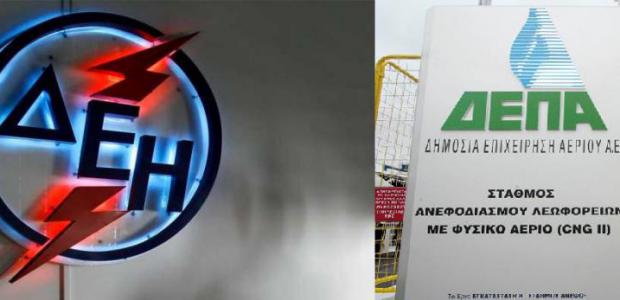A prospective Greek privatization fund being prepared will include a subsidiary firm to take on board the country’s public utilities, from energy to water companies, as an intermediate step ahead of their future standings, Greek officials and lenders appear to have agreed.
The subsidiary firm, to include PPC, the main power utility, DEPA, the Public Gas Corporation, and other enterprises offering public services, such as EYDAP, the Athens Water Supply and Sewage Company, EYATH, the Thessaloniki Water Company, and ELTA, Hellenic Post, was discussed at a meeting yesterday between Greece’s finance minister Euclid Tsakalotos, economy minister George Stathakis and the creditor representatives.
Agreements seem to have been reached on the basics, such as the parties to be authorized to make decisions, and the number of subsidiary firms to be established. A supervisory board will control these subsidiaries, while a management board will act as a subordinate.
According to the plan, the supervisory board, to be comprised of five members, will be ultimately responsible for the utilization of Greek assets. Three of these members will be appointed by the Greek government and the other two, including the chairman’s position, will be appointed by the country’s lending institutions. A qualified majority system will be adopted for the supervisory board, meaning that decisions will require the backing of four of the five members in order to proceed.
Proposals on which Greek assets will be utilized and when will be determined by the finance minister serving at the the time following exchange with both the supervisory and management boards.
Government sources informed that the management board will be made up of Greek officials. However, the establishment of a supervisory board as the top decision maker on the utilization of Greek assets has led many to believe that lenders will have the upper hand in the next generation of Greek privatizations.
The new privatization fund will need to be established and ready to operate within the second half of this year. It is still not entirely clear which Greek assets will be included in the fund and when these could be utilized.
Last summer’s third bailout agreement set a long-term privatization plan over a thirty-year period, to be pursued when economic conditions permit and the timing is right. This condition applies for all Greek assets, including PPC and DEPA.
Considering the depreciated values of Greek assets amid the recession, the current year will certainly not be chosen as the right time to privatize. If the Greek economy shows some signs of recovery next year, then 2017 may well be the year when authorities begin examining the prospect of utilizing Greek state enterprises and property.





